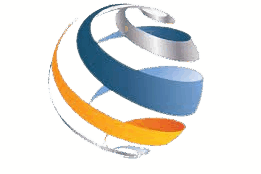If you’re drowning in multiple debts—credit cards, medical bills, or personal loans—you might feel like there’s no way out. But guess what? There is! A personal loan for debt consolidation could be your ticket to financial freedom. Instead of juggling multiple payments and sky-high interest rates, you can roll everything into one manageable loan with a lower interest rate. Sounds cool, right? Let’s break it down in a way that makes sense.
What is a Personal Loan for Debt Consolidation?
A personal loan for debt consolidation is a type of loan that helps you pay off multiple debts at once. Instead of dealing with five different payments, you only have one loan to pay back each month. The biggest perk? It often comes with a lower interest rate, saving you tons of money over time.
How Does It Work?
- Apply for a personal loan – You borrow a specific amount of money from a lender.
- Use the loan to pay off existing debts – Once approved, you use the funds to clear high-interest credit card balances, medical bills, or payday loans.
- Make a single payment each month – Now, instead of managing multiple due dates and crazy interest rates, you only have one loan payment.
Sounds easy, right? That’s because it is!
Benefits of a Personal Loan for Debt Consolidation
Taking out a personal loan to consolidate your debts can offer some serious perks. Let’s check them out:
1. Lower Interest Rates
Most credit cards have insane interest rates—some even 25% or more! A personal loan usually offers rates as low as 6-10%, depending on your credit score.
2. One Simple Payment
Say goodbye to keeping track of multiple bills. With a debt consolidation loan, you make one monthly payment to one lender. No more stress!
3. Faster Debt Payoff
Since you’re paying less in interest, more of your money goes toward actually clearing the debt. That means you’ll be debt-free faster!
4. Boosts Your Credit Score
Yep, that’s right! When you pay off credit card balances, your credit utilization drops, which can increase your credit score.
5. Less Stress, More Freedom
Money problems are a huge stressor. Having a clear, structured plan makes life easier and gives you peace of mind.
Things to Consider Before Taking a Personal Loan for Debt Consolidation
While debt consolidation loans sound like a dream come true, there are a few things you need to keep in mind:
1. Your Credit Score Matters
If your credit score is good (above 670), you’ll get a lower interest rate. If it’s bad, the loan might not be worth it.
2. Fees and Charges
Some lenders charge origination fees (1-5% of the loan amount). Always check for hidden fees before signing anything.
3. Discipline is Key
If you take out a consolidation loan but keep using your credit cards recklessly, you’ll end up in deeper debt. Avoid that trap!
4. Compare Lenders
Not all personal loans are created equal. Shop around to find the best interest rates and repayment terms.
How to Apply for a Personal Loan for Debt Consolidation
Step 1: Check Your Credit Score
Use free tools like Credit Karma or Experian to check where you stand.
Step 2: Research Lenders
Look at banks, credit unions, and online lenders. Compare interest rates and terms.
Step 3: Gather Documents
Lenders usually ask for:
- Proof of income (pay stubs, tax returns)
- ID (driver’s license, passport)
- List of debts you want to consolidate
Step 4: Apply and Wait for Approval
Some lenders offer instant approval, while others may take a few days.
Step 5: Use the Loan to Pay Off Debt
Once the loan is in your account, use it to clear your debts immediately.
Step 6: Make Payments on Time
Stay on track with your new loan payments and avoid missing due dates.
Alternatives to Personal Loans for Debt Consolidation
Not sure if a personal loan is right for you? Here are some alternatives:
- Balance Transfer Credit Cards – 0% interest for a set period, but high fees if not paid off in time.
- Debt Management Plans – Work with a credit counselor to negotiate lower payments.
- Home Equity Loans – Use your home as collateral for a lower interest rate.
- Snowball or Avalanche Method – Pay off small debts first or attack the highest interest rate debt first.
Frequently Asked Questions (FAQs)
1. Will a debt consolidation loan hurt my credit score?
Initially, your score might dip a little due to the hard inquiry. But over time, as you pay off debts, your score should improve.
2. Can I get a personal loan with bad credit?
Yes, but expect higher interest rates. Some lenders specialize in bad credit loans.
3. How much can I borrow for debt consolidation?
It depends on your credit score and income. Most lenders offer between $1,000 – $50,000.
4. What happens if I miss a payment?
Late payments can lead to fees and hurt your credit score. Always set up auto-pay to avoid missing due dates.
5. Is debt consolidation the same as debt settlement?
Nope! Debt settlement is negotiating with creditors to pay less than you owe. Debt consolidation combines all your debts into one.
Conclusion
A personal loan for debt consolidation can be a game-changer if used wisely. It simplifies payments, lowers interest rates, and helps you become debt-free faster. But before jumping in, do your research, compare lenders, and commit to responsible spending habits.
Got questions? Drop them in the comments, and let’s talk about it!
